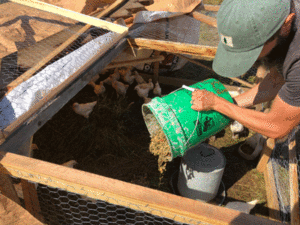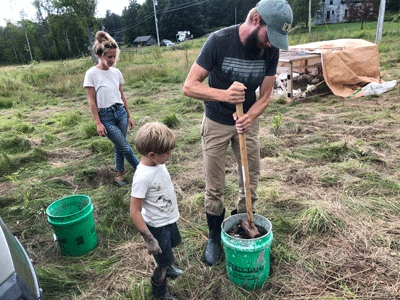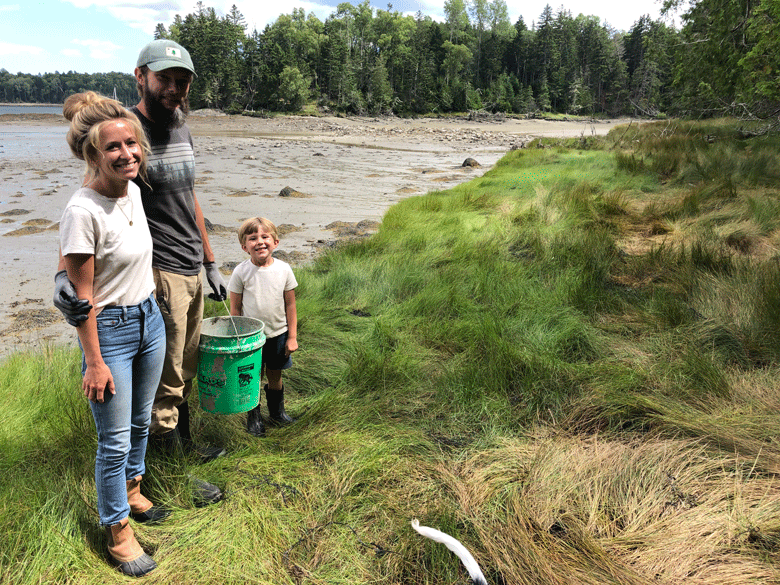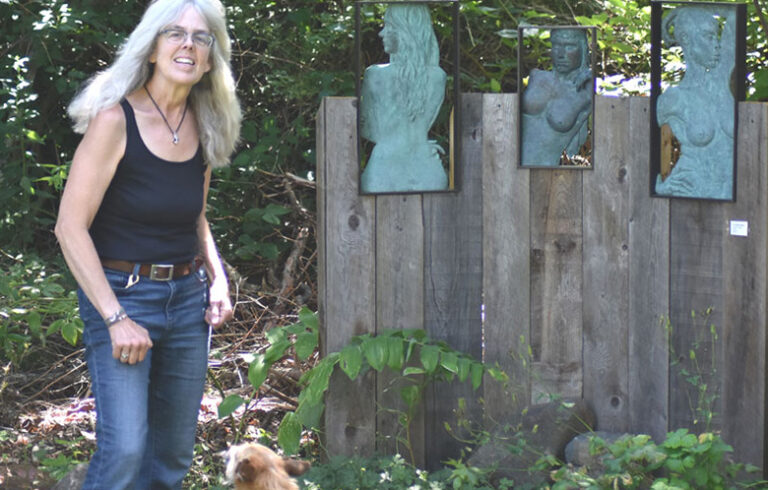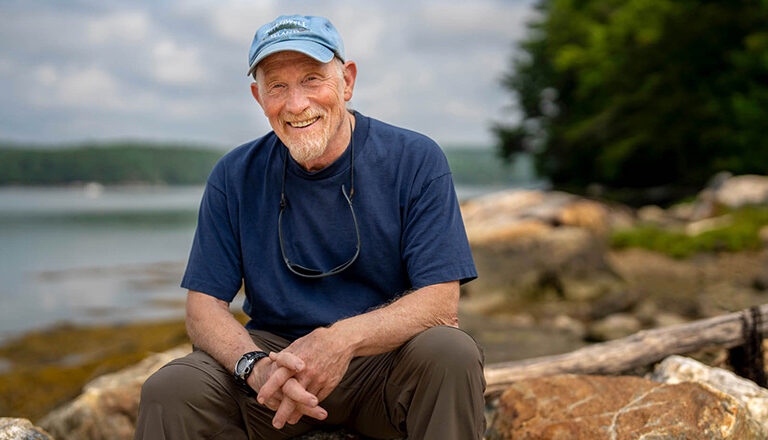Two years ago, Ethan Spaulding, 30, his wife Caitlin, 26, and their son Forrest, 6, left the rich soils of Indiana to start a farm on a rocky island off the Maine coast. They knew logic wasn’t on their side, but they believe their God is.
“We knew nobody out here,” Ethan said while driving from the ferry landing to the farm the family is establishing near the northern end of Islesboro. “But we really felt led to have a place on the coast.”
Fundamentalist Christians, they heeded what they believed was God’s direction and ended up owning 35 acres with 900 feet of shorefront on Ryder Cove, the site of an old tidal mill.
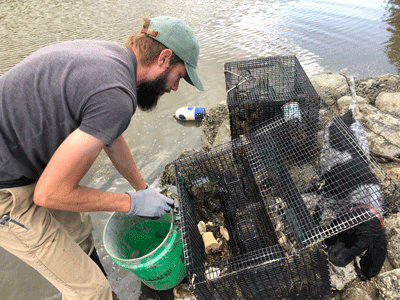
The property had been a farm but had not been in production for many years, effectively abandoned, Spaulding said. The couple contacted the owner from Indiana.
“We sent him a letter and said, ‘We want a farm,” and the owner offered the Spauldings what Ethan said was a generous price, and Sabbathday Saltwater Farm was born.
“It’s a miracle that we have the place,” he said.
Ethan has carpentry skills and has begun operating as Sabbathday Home & Garden, working on some of the island’s older houses to make ends meet as the farm gets up and running. When time allows, he and Caitlin have been plugging away on the 1850 farmhouse that came with the property. A line of windows they added in the kitchen offer views across a field to the shore.
For now, the farm is focusing on raising birds—ducks, geese, and chickens.
“There’s about a hundred birds,” Ethan says.
The highlight of my visit is a demonstration of a modified trap which is catching green crabs, an invasive species that has been consuming softshell clams in large numbers in Maine.
“They can eat 22 clam seedlings in a day,” Ethan says. If the trap catches a hundred or so every few days, he believes he’s making a difference.
“We really want to help the wild clam population,” he says. Eventually, the couple plans to apply for a limited purpose aquaculture lease to grow their own softshell clams. Ethan serves on Islesboro’s shellfish committee.
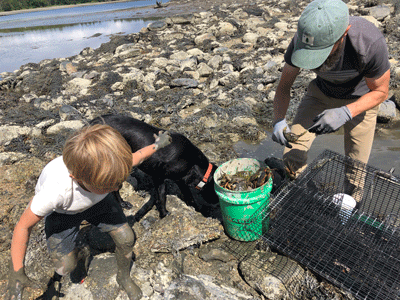
I join the family and two dogs in a side-by-side all-terrain vehicle and we bounce our way across the field, which includes a big patch of blackberries, to the shore.
Ethan and Caitlin allow Forrest to run around the slick, low-tide mud with the dogs, and when Ethan checks the trap, set at a choke point where the remains of the tidal mill are evident, the boy is eager to see the catch.
On this day, the trap contains about 200 green crabs. They’re transferred by hand into a bucket. When some escape, Ethan grabs and tosses them into a bucket, and when a nervous Forrest tries to help, his father takes time for a short lesson on why the crabs shouldn’t be hurt until it’s time to kill them.
Back at the pens where the chickens and ducks are kept, Ethan takes a sledge hammer and smashes the crabs into a gooey green pulp, and then feeds them to the birds, who seem to relish the food.
The calcium in the crab shells seems to support the shells of the bird eggs, Ethan says. The couple are giving the eggs to friends on the island, hoping to learn if the crab feed is affecting the taste, for the better or worse.
The farm also produces sea salt and there are plans for introducing some four-legged critters to the mix next year.
The Spauldings say they know the farm will take time to establish and thrive, but they are committed to the island and this life.
